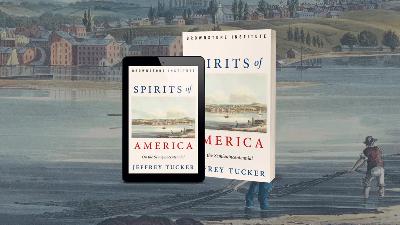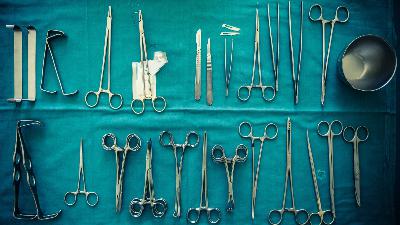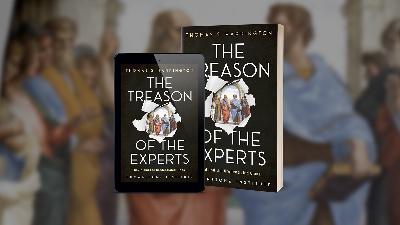The Spirit of Agronomy
Update: 2025-10-07
Description
By Jeffrey A. Tucker at Brownstone dot org.
[The following is an excerpt from Jeffrey Tucker's book, Spirits of America: On the Semiquincentennial.]
It's impossible to speak of American history without reference to the life of the farmer and the land. The experience shaped many generations. It formed the basis for the belief in freedom itself, the conviction that a family can provide for itself through hard work and defend its rights based on the little slice of physical land that the family controlled.
Read any of the writings of the Founding Fathers, and you find an unrelenting romanticization of life on the land. "When I first entered on the stage of public life," wrote Thomas Jefferson, "I came to a resolution never…to wear any other character than that of a farmer."
The idea rattles us a bit. We don't really have agronomy anymore. We live in cities, type on laptops, play with digits, farm information, and our only connection with food is the grocery store and restaurant.
Reading Jefferson, then, makes one think: we don't live on farms anymore, so all must be lost. That, of course, is untrue. His point is simply that the agrarian life provides a bulwark, not that you cannot have freedom if it gives way to other modes of living.
And the agrarian life did give way, for reasons both organically evolving but also through force, which is deeply regrettable. As the Industrial Revolution advanced, fewer and fewer people lived on farms. We moved to the cities. By 1920, it was pretty well done: industry beat agriculture in its overall contribution to American productivity.
For most of my adult life, I made fun of people who had regrets about this. What's wrong with corporate farming? It's feeding the world and we would starve otherwise. We need big companies, huge machinery, oceans of pesticide and fertilizer, and consolidated supply chains. We simply cannot and should not go back.
I've come to change my mind, however, now that I've been so heavily exposed to a critique of industrial food and Big Agriculture. I see now that it is not entirely natural and normal that they would have replaced small farms.
Last year, I drove to the countryside, pulled over at a farmers' market, and had a long conversation with the husband and wife who ran the farm and the meat and vegetable stand. They talked of their struggles with the weather, of course, and dealing with the exigencies of nature.
Mostly, they spoke of the artificial struggles they face. They are hit relentlessly with tax on land, taxes on production, taxes on profits, taxes on everything. There are regulations too. They are prevented from selling directly to stores. They face grueling restrictions on meat processing. The health inspectors drive them nuts. They face constraints on wages, hourly restrictions on labor, and wrangle with bureaucrats constantly.
Without all of this, they are certain that they could make a better go of it. They could compete with the big guys. After all, their products are healthier, more delicious, and just overall better. No question, they said, that they could compete and win on a fair playing field. As it stands, they barely survive.
I've come to appreciate that point of view. Imagine if we suddenly did have a free market in agriculture. No taxes, no regulations, no mandates, no restrictions. Anyone can raise food, process it, and sell it to whomever under any conditions. In other words, what if today we had the same system we had in the time of Jefferson and Washington?
We would see an absolute explosion in small farms. Everyone would be selling eggs. Produce would be everywhere and so would meat. We would learn not to depend on grocery stores and supercenters but our friends and neighbors. The idea of eating locally would not have to be preached by anyone; it would just become our daily routine again.
This is because everyone prefers local produce over industrially shipped and packaged corporate food. We only have the ubiquity of the latter due t...
[The following is an excerpt from Jeffrey Tucker's book, Spirits of America: On the Semiquincentennial.]
It's impossible to speak of American history without reference to the life of the farmer and the land. The experience shaped many generations. It formed the basis for the belief in freedom itself, the conviction that a family can provide for itself through hard work and defend its rights based on the little slice of physical land that the family controlled.
Read any of the writings of the Founding Fathers, and you find an unrelenting romanticization of life on the land. "When I first entered on the stage of public life," wrote Thomas Jefferson, "I came to a resolution never…to wear any other character than that of a farmer."
The idea rattles us a bit. We don't really have agronomy anymore. We live in cities, type on laptops, play with digits, farm information, and our only connection with food is the grocery store and restaurant.
Reading Jefferson, then, makes one think: we don't live on farms anymore, so all must be lost. That, of course, is untrue. His point is simply that the agrarian life provides a bulwark, not that you cannot have freedom if it gives way to other modes of living.
And the agrarian life did give way, for reasons both organically evolving but also through force, which is deeply regrettable. As the Industrial Revolution advanced, fewer and fewer people lived on farms. We moved to the cities. By 1920, it was pretty well done: industry beat agriculture in its overall contribution to American productivity.
For most of my adult life, I made fun of people who had regrets about this. What's wrong with corporate farming? It's feeding the world and we would starve otherwise. We need big companies, huge machinery, oceans of pesticide and fertilizer, and consolidated supply chains. We simply cannot and should not go back.
I've come to change my mind, however, now that I've been so heavily exposed to a critique of industrial food and Big Agriculture. I see now that it is not entirely natural and normal that they would have replaced small farms.
Last year, I drove to the countryside, pulled over at a farmers' market, and had a long conversation with the husband and wife who ran the farm and the meat and vegetable stand. They talked of their struggles with the weather, of course, and dealing with the exigencies of nature.
Mostly, they spoke of the artificial struggles they face. They are hit relentlessly with tax on land, taxes on production, taxes on profits, taxes on everything. There are regulations too. They are prevented from selling directly to stores. They face grueling restrictions on meat processing. The health inspectors drive them nuts. They face constraints on wages, hourly restrictions on labor, and wrangle with bureaucrats constantly.
Without all of this, they are certain that they could make a better go of it. They could compete with the big guys. After all, their products are healthier, more delicious, and just overall better. No question, they said, that they could compete and win on a fair playing field. As it stands, they barely survive.
I've come to appreciate that point of view. Imagine if we suddenly did have a free market in agriculture. No taxes, no regulations, no mandates, no restrictions. Anyone can raise food, process it, and sell it to whomever under any conditions. In other words, what if today we had the same system we had in the time of Jefferson and Washington?
We would see an absolute explosion in small farms. Everyone would be selling eggs. Produce would be everywhere and so would meat. We would learn not to depend on grocery stores and supercenters but our friends and neighbors. The idea of eating locally would not have to be preached by anyone; it would just become our daily routine again.
This is because everyone prefers local produce over industrially shipped and packaged corporate food. We only have the ubiquity of the latter due t...
Comments
In Channel























